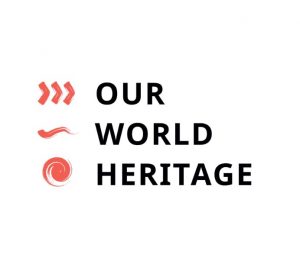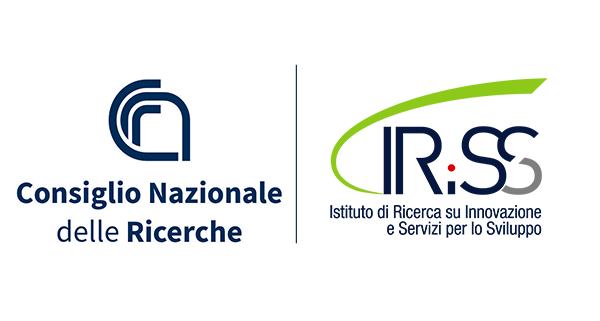Discussions organized by Our World Heritage address critical issues in World Heritage conservation and management. The debates will be reported during the World Heritage Forum.
 During 2021, Our World Heritage organises events and debates in order to integrate participation and dialogue into World Heritage activities. The aim is to raise awareness and gather knowledge on themes of heritage protection, support knowledge based decision-making, promote good governance and engage civil society. In this perspective, a series of 12 monthly thematic discussions are organized to address critical issues in World Heritage conservation and management. The debates will then become reports to present during the World Heritage Forum in 2022.
During 2021, Our World Heritage organises events and debates in order to integrate participation and dialogue into World Heritage activities. The aim is to raise awareness and gather knowledge on themes of heritage protection, support knowledge based decision-making, promote good governance and engage civil society. In this perspective, a series of 12 monthly thematic discussions are organized to address critical issues in World Heritage conservation and management. The debates will then become reports to present during the World Heritage Forum in 2022.
Significant within the CLIC project is session 20 in which innovative practices in heritage economics and heritage paradigms regarding protection and preservation will be explored. Paradigms are not exclusively about cultural and intrinsic values; rather, intrinsic values are the vehicle for achieving more general goals, to be achieved through heritage conservation. In this perspective, the debate contributes to reflecting on the role of heritage economics.
The webinar, held the 18th June 2021, has focused on innovative practices with activation of multidisciplinary techniques in each phase of the preservation process (documentation, planning, restoration, monitoring), supported by innovative models in terms of governance, partnership, funding, and decision-making. The webinar was attended by Donovan Rypkema, president of Heritage Strategies International intervening on “Beyond tourism: the other economic impacts of heritage conservation”. His speech showed the studies carried out in multiple US cities on the impacts of heritage through the measurement of investment (comparing World Heritage and non-World Heritage cities), property values, location of startups, small businesses and creative enterprises, jobs and environment. The study has shown how cultural sites and historic centres have a greater economic attractiveness with benefits on the territory, quality of life, as well as a greater willingness to pay for the user, with obvious benefits at the environmental, social and economic level. With regard to intrinsic values, studies have shown that tourism has a greater impact in places with greater heritage with intrinsic value, with the resulting economic benefits.
Alessio Re – expert in culture economics, presenting “Innovative schemes for economic investment on cultural heritage” – showed some practical examples related to the research in progress regarding cultural and economic and also management aspects to present some tools and instruments to transfer research into practice. The experiences do not concern only the cultural site but necessarily also the context, the community that re-appropriates the places to take advantage of them by increasing its quality of life. The practice regards Palazzina di caccia in Stupinigi, in which the working group tried to harmonize conservation with development, The Sikh Gurdwara in Punjab, and the Heritage & Tourism management in Azerbaijan.
Christer Gustafson, professor at Department of Art History, Conservation with a topic on “Cultural heritage and innovation, smart heritage-based development strategies” focused that the critical point for the design of actions is cultural education to heritage as an engine of development, particularly in the sense of conservation. This is true for decision makers at all levels, in particular in southern European areas. The approach is to find the points of interest, the resources available, etc., of the decision makers.
Luigi Fusco Girard – emeritus professor at University of Naples Federico II and scientific coordinator of H2020 CLIC project, with the discussion “Towards impacts assessment framework for circular “human-centred” adaptive reuse of cultural heritage”, has introduced his seminar showing how human-centred approach, circular approach and adaptive reuse converge in the CLIC project with the aim to define guidelines and solutions in terms of tools related to business models, financial and evaluation related to adaptive reuse. After the disamine of the concepts, the professor shows how, considering the human-centred paradigm and ecological circular paradigm, adaptive reuse can be considered in a systemic perspective, able to connect built, natural, human capitals, in particular through evaluation, being at the basis of the choices between change, conservation and transformation, both for current and future generations. In particular, evaluation is not to compare given alternatives but stimulate creative alternatives. Ultimately, intrinsic value can become a tool for sharing the cultural perspective, becoming the driver for circular human centred adaptive reuse. It is therefore essential to identify new evaluation tools that assess the intrinsic, instrumental and relational values linked to the systemic perspective.
More info


 During 2021, Our World Heritage organises events and debates in order to integrate participation and dialogue into World Heritage activities. The aim is to raise awareness and gather knowledge on themes of heritage protection, support knowledge based decision-making, promote good governance and engage civil society. In this perspective, a series of 12 monthly thematic discussions are organized to address critical issues in World Heritage conservation and management. The debates will then become reports to present during the World Heritage Forum in 2022.
During 2021, Our World Heritage organises events and debates in order to integrate participation and dialogue into World Heritage activities. The aim is to raise awareness and gather knowledge on themes of heritage protection, support knowledge based decision-making, promote good governance and engage civil society. In this perspective, a series of 12 monthly thematic discussions are organized to address critical issues in World Heritage conservation and management. The debates will then become reports to present during the World Heritage Forum in 2022.
Devi effettuare l'accesso per postare un commento.